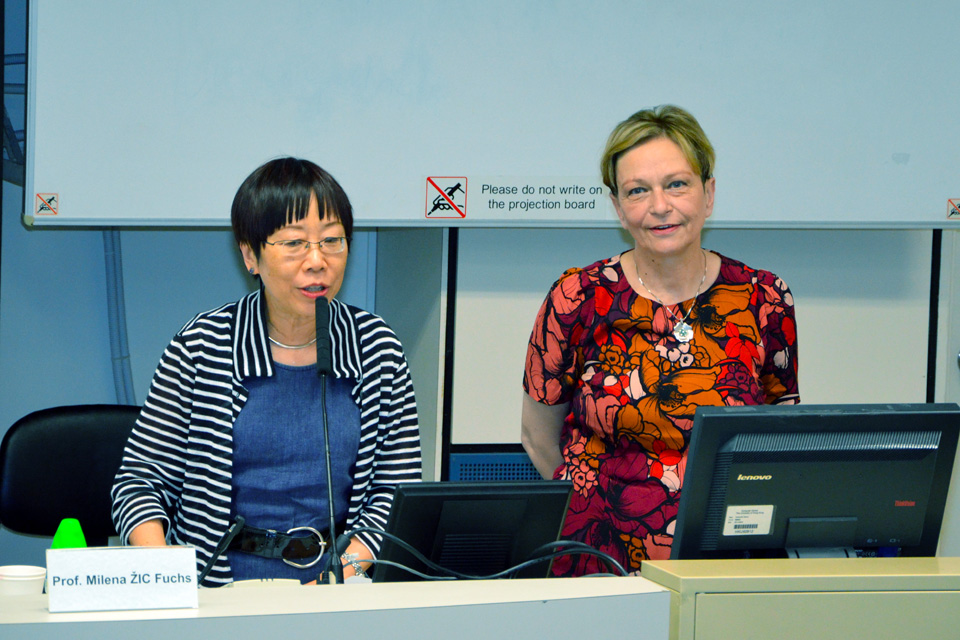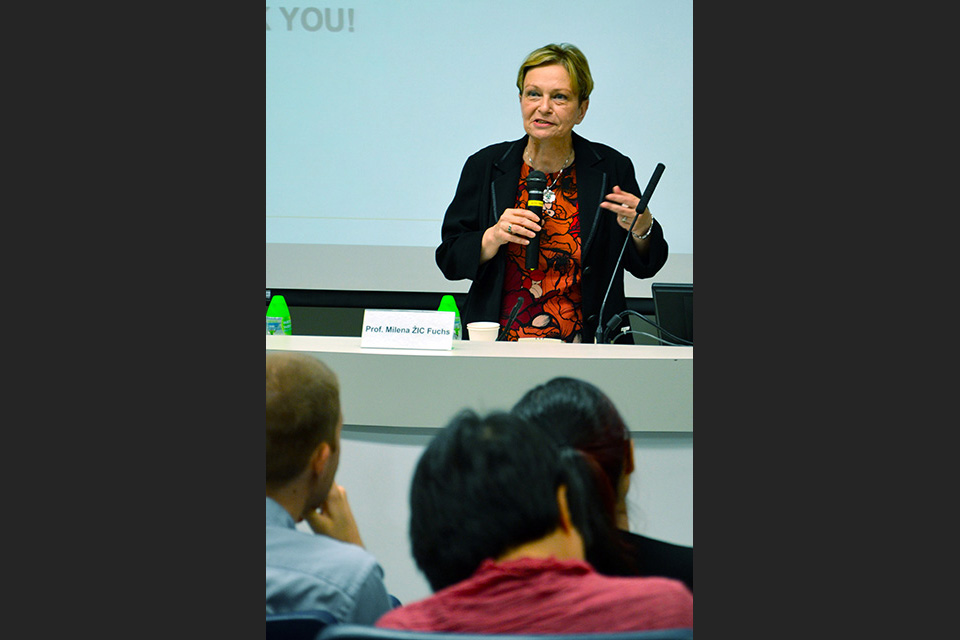- ABOUT HKIHSSABOUT HKIHSS
- PEOPLE
- NEWS & EVENTSNEWS & EVENTS
- RESEARCHRESEARCH
- FELLOWSHIPS & GRANTSFELLOWSHIPS & GRANTS
- TEACHING & LEARNINGTEACHING & LEARNING
- PUBLICATIONSPUBLICATIONS
Title:
New Networks of Knowledge: How to Achieve Benefits for the Individual and Society at Large
Professor Milena Žic Fuchs (Professor, English Department, University of Zagreb; Chair, Scienti c Review Group for the Humanities, European Science Foundation)
May 21, 2014
4:30 pm (Refreshments 4:00 pm)
Venue:
T7, 1/F, Meng Wah Complex, The University of Hong Kong
Language:
English
Enquiry:
(Tel) (852) 3917-5772
(Email) [email protected]
The “contexts” of research in all scientifi c domains are changing in the sense that interesting science is not enough — it is expected that a challenge has to be involved. In the articulation of “challenges” the question of what kind of “expertise” and what kinds of “knowledges” is needed becomes of primary importance. This has become a focal issue in the new European Research Framework — HORIZON 2020, i.e. the so-called Societal Challenges previously called Grand Challenges. Grand Challenges such as climate change, new approaches in medicine (such as personalized medicine), research on water, etc., demand a multidisciplinary/transdisciplinary approach not only encompassing Humanities and Social Sciences, but having them at their core from beginning to end. This in itself is possibly the biggest Challenge of all.
Through various Humanities and Social Sciences disciplines, important social and cultural values are identi ed and disseminated. Humanities disciplines focus on the human element in the manifold physical, biological, mental, social and cultural aspects of life. They attempt to provide insights into how knowledge arises from the constant interaction between the individual and the society. From this arises a distinction between so-called empirical and orientational knowledge and the question that follows is how to make most out of the possible synergy between these two kinds of “knowledges”. Or, in other words, empirical knowledge should transform into orientational knowledge which is by de nition culturally de ned and socially implemented.
Possible answers to the above questions and approaches will be given from the European Science Foundation Forward Looks on Climate Change (RESCUE), Personalized Medicine, as well as from an event for early-career researchers on Water, held in the summer of 2012.


Copyright © 2023 Hong Kong Institute for the Humanities and Social Sciences, The University of Hong Kong. All Rights Reserved.